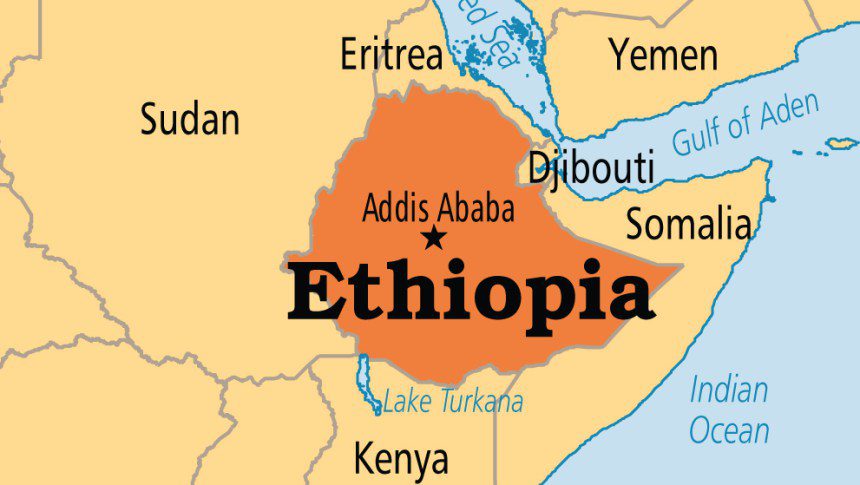Ethiopia’s debt burden remains at high-risk over the past fiscal year exceeding the 55 percent threshold, according to a report by the country’s Ministry of Finance.
Communication Director at the Ministry told reporters on Monday, Haji Ebsa said Ethiopia’s internal and external debt until last March 2019 amounts $52.57 billion, out of which $26.93 billion is external debt.
Reports revealed that the country’s external debt sustainability remains at high risk of debt distress, which is currently exceeding 60 percent beyond the threshold of debt ceiling.
In recent years the country heavily runs in debt of multi-billion dollars from foreign countries to fund multiple infrastructure projects, which remarkably pushed up debt levels to exceed its threshold.
Last fiscal year, Ethiopia’s real GDP growth slowed due partly to civil unrest, political uncertainty, and policy adjustments that involved fiscal consolidation to stabilize the government debt.
Prime Minister Abiy Ahmed on his annual report to the House of peoples’ Representatives (HPR) said Ethiopia’s economy is expected to grow by 9.2 percent for the current fiscal year, which ended July 7, 2019
Haji said the country is working to alleviate the debt burdens by taking various measures including dipping foreign commercial loan.
On the other hand, Haji said the country showed that a $700 million of non-concessional and commercial external funds from the preceding year.
In total, the federal government has collected 85.84 percent of its planned regular revenue in the past budget year, Haji pointed out.
The tax mobilizations and transformation reforms in the country contributed to a better domestic revenue collection and external financial inflow in 2018/19, he stated.
Haji noted that eight reforms has been undertaken within the taxation system, which are expected to bring more than 20 billion birr increases in tax revenue in the years ahead.
He said, non-concessional and commercial financial inflow has reached 2,804.4 million USD, excluding the direct $1.2 billion USD budget from the World Bank.
According to the director, the government is strongly working to control inflation for the upcoming year by 9.6 percent.
MG/abj/APA


